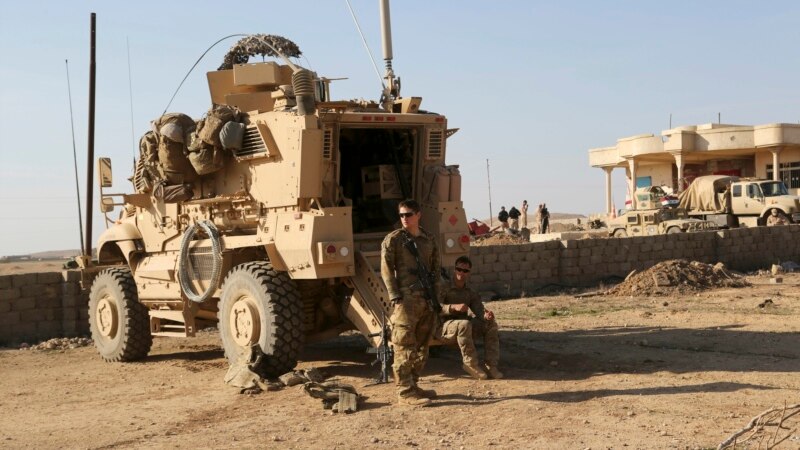
The United States and Iraq will start talks to end the U.S.-led international military coalition in Iraq and transition to a bilateral partnership, continuing a process that has been stalled by the Israel-Hamas war.
Secretary of Defense Lloyd Austin issued a statement Thursday saying the talks would begin “in the coming days.” Last August, Iraq and the U.S. committed to the talks, which Austin said would allow a relationship between the two countries to build on the success of Iraq’s campaign known as Defeat Islamic State in Iraq and Syria, or D-ISIS.
“U.S. military personnel are in Iraq at the invitation of the Iraqi government, as part of Operation Inherent Resolve’s mission to advise, assist, and enable the Iraqi security forces in their ongoing fight against ISIS. The United States remains committed to a secure, stable, and sovereign Iraq,” Austin said.
The U.S. has about 2,500 troops in Iraq tasked with advising and assisting Iraqi security forces as they pursue the remnants of the Islamic State group, also known as ISIS or Daesh.
A separate statement from Iraq’s Foreign Ministry described the talks as an effort to “initiate the gradual and deliberate reduction” of U.S. military advisors in Iraq.
The talks will “formulate a specific and clear timetable that specifies the duration of the presence of international coalition advisors,” it said.
The announcement on the high-level talks – expected to start sometime in the coming days, according to U.S. defense officials – comes just days after the U.S. launched a series of strikes against Iran-backed militias in Iraq. The U.S. blames them for scores of attacks against American forces in Iraq.
Militia officials have said they are carrying out the strikes in support of Palestinians in Gaza under attack from Israel. But some U.S. officials have characterized them as part of an ongoing push by Iran to evict the U.S. from the region.
There have also been increased tensions between Washington and Baghdad.
Iraqi Prime Minister Mohammed Shia al-Sudani said in early January that he was determined to “put an end” to the U.S.-led coalition to defeat IS in Iraq, following a U.S. airstrike that killed an Iran-backed militia leader in the heart of the Iraqi capital.
But U.S. officials Thursday denied attacks by the Iran-backed militias were in any way connected to the announcement of the talks.
“It’s not connected to recent events,” a senior U.S. defense official told reporters Thursday, briefing on the condition of anonymity under rules set by the Pentagon.
“If anything, the militia attacks delayed our original plan,” the official said. “The plan was to proceed later in 2023. Obviously, events in recent weeks have caused everyone to have to attend to other business.”
The prospect of high-level talks dates back to August of last year, when Iraqi Defense Minister Thabit Muhammad al-Abbasi met with Defense Secretary Austin at the Pentagon.
At the time, U.S. officials envisioned eventually moving to what they described as a more normal bilateral defense relationship with Baghdad, acknowledging that it would result in a reduction of U.S. forces in Iraq as Iraq’s military capabilities grew.
But when and how that happens remains to be determined, according to U.S. officials, who played down any notion of a U.S. military pullout.
“Let me be clear. The HMC [Higher Military Commission] meeting is not a negotiation about the withdrawal of U.S. forces from Iraq,” the senior U.S. defense official told reporters during Thursday’s briefing.
“Our Iraqi partners have assured us of their commitment,” the official said. “We are going to, together with our Iraqi partners, help determine the shape of the future U.S. military presence in Iraq and at the same time ensure an Iraqi-led enduring defeat of ISIS.”
“Beyond that, we won’t speculate,” the official said.
The arrangement to defeat the Islamic State terror group, with Iraqi forces in the lead since December 2021, has proven successful, according to the officials. U.S. estimates show IS ranks have been cut to fewer than 1,000 fighters in Iraq while the group’s leadership there has been continually degraded by Iraqi forces.
Some information for this report came from the Associated Press, Reuters and Agence France-Presse.
